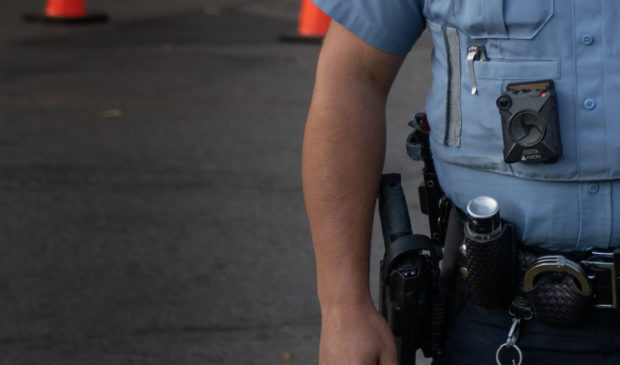Police oversight office advocates for community input in updating police body- and dash-cam policies
Wednesday, October 12, 2022 by
Emma Freer The Austin Police Department should incorporate public feedback when developing policies related to body-worn and dashboard cameras, direct officers to alert community members when their interaction is being recorded, investigate potential violations of body-worn and dashboard camera policies, and reconsider the role that private vendors play in the policymaking process.
These are among the 17 recommendations issued by the city’s Office of Police Oversight in its third and final report about APD’s body-worn and dashboard camera policies.
In the wake of mass protests against police brutality and racism, City Council members passed three ordinances in June 2020 directing city staff to revise APD’s General Orders, or policy manual, using national best practices and community input, among other charges. In response, OPO developed “a three-phase approach” focused on body-worn and dashboard camera policies, culminating in its most recent report, which was released Oct. 6.
During its third phase, which began in April, OPO developed its final recommendations, based in part on community input gathered during the second phase. The office also contacted police departments and civilian oversight offices in 15 cities around the country to learn more about how they develop similar policies.
In one of its recommendations, OPO encouraged APD to publicize its policies and explain its reasoning for them, pointing to community feedback showing that most Austinites are unfamiliar with APD policy.
“Body-worn and dashboard cameras play a vital role in improving transparency related to policy,” the report states. “As a result, APD must work to ensure that community members understand what they are, how they work and how they’re used by APD officers.”
OPO also reiterated an earlier recommendation that APD not rely on Lexipol, a private vendor that “provides a full library of customizable, state-specific law enforcement policies,” according to its website.
OPO raised concerns about Lexipol, including that it “prioritizes risk management for police departments and advertises itself as a way for police departments to decrease liability in civil suits alleging police misconduct,” rather than ensuring accountability and community buy-in.
Although OPO acknowledged the challenges of developing department policy in-house, free from vendors’ influence, it encouraged APD to take this path while also researching best practices and collecting community input.
OPO cited community support for each of its recommendations based on 525 survey submissions collected during the second phase of this process, according to the report. For example, two-thirds of survey respondents believe the city should request and use public feedback when writing rules, and 62 percent believe officers should be required to acknowledge their use of body-worn and dashboard cameras in a police report.
Photo by Tony Webster, CC BY-SA 2.0, via Wikimedia Commons.
The Austin Monitor’s work is made possible by donations from the community. Though our reporting covers donors from time to time, we are careful to keep business and editorial efforts separate while maintaining transparency. A complete list of donors is available here, and our code of ethics is explained here.
You're a community leader
And we’re honored you look to us for serious, in-depth news. You know a strong community needs local and dedicated watchdog reporting. We’re here for you and that won’t change. Now will you take the powerful next step and support our nonprofit news organization?











